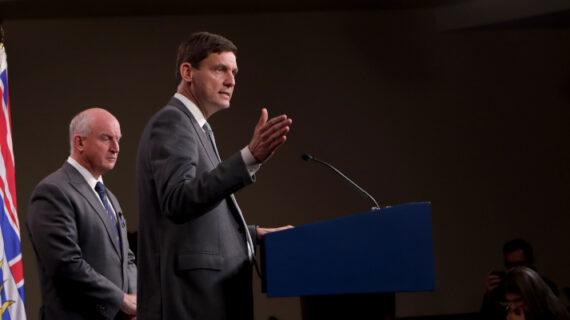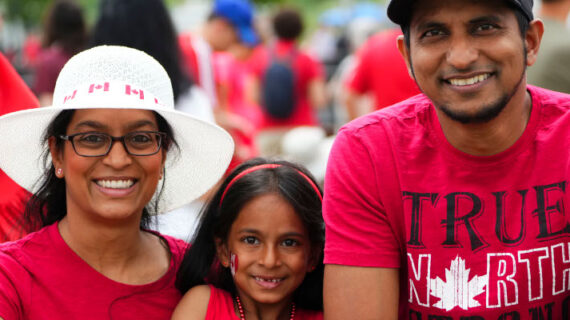- With the two progressive parties working so closely together, the Conservatives are starting to worry that winning the most seats in the next election won't be enough to give them a chance to govern.
- There is an overwhelming feeling among Conservatives that any attempt by Trudeau to hold on to power after losing the seat count will go down poorly with Canadians, providing a political opening for Poilievre.
- If the NDP declines to work with the Liberals again, it would give the Conservative Party a free run at forming a minority government.
Since the Liberal Party and NDP agreed to a governance agreement last year that should extend the life of Prime Minister Justin Trudeau’s minority government, Conservative leader Pierre Poilievre has been laser-focused on the “costly coalition.”
In fact, a drinking game based on that phrase in the House of Commons would inundate Canada’s emergency rooms and launch calls for domestic production of stomach pumps. On March 30 alone the phrase made 10 appearances in the parliamentary record.
And although the confidence and supply agreement between the Liberals and the NDP is driving the agenda on Parliament Hill, Poilievre may be looking ahead warily to the aftermath of the next election.
With the two progressive parties working so closely together, the Conservatives are starting to worry that winning the most seats in the next election won’t be enough to give them a chance to govern. The Liberals and NDP will have a constitutional right to test the confidence of the House and possibly keep governing.
That means if the Conservatives don’t win a majority they may not even get a chance at winning the confidence of the House.
“Constitutionally, that’s their right,” said an adviser in Poilievre’s office, who was speaking on the condition they not be named. “But we will go nuclear.”
There is an overwhelming feeling among Conservatives that any attempt by Trudeau to hold on to power after losing the seat count will go down poorly with Canadians, providing a political opening for Poilievre.
“There are very big political and public opinion factors at play here. There’s just a natural sense among people that the party that won the most seats is the party that should form the government,” said Dan Robertson, who was the chief strategist for the 2021 Conservative Party general election campaign and is the founder of Pathos Strategy.
“It’s easy to understand and it aligns with people’s sense of fairness,” said Robertson.
Recent polls show the Conservatives slightly ahead of the Liberals in the national popular vote which, on election day, would likely lead to a slim Conservative minority in the seat count. The 338Canada project, which creates election projections, currently places the Conservatives one seat ahead of the Liberals.
Cam Holmstrom, the founder and principal of Niipaawi Strategies and who worked for the NDP on Parliament Hill for nearly a decade, said the exact seat count will be vital and a lot will depend on which parties pick up the remaining seats. For example, in 2008, the Liberals and NDP tried to form a coalition with the Bloc Québécois to bring down Stephen Harper’s Conservative government, but the effort disintegrated quickly.
“We saw what played out in 2008. I would argue that if the Bloc had never been involved that probably wouldn’t have blown up the way it did. But still, you saw how the Conservatives went at it,” said Holmstrom.
Former prime minister Paul Martin resigned in 2006 after losing to Stephen Harper’s Conservatives, even though Martin could have theoretically cobbled together a governing arrangement with the NDP and the Bloc Québécois.
Holmstrom said Martin was brought down by the aftershocks of the sponsorship scandal, which made other parties less likely to want to work with the Liberals for fear of being tainted by the controversy. It’s not out of the realm of possibility for the current Liberal government to be brought down in a similar fashion, he said.

“So if that’s how it all goes down, I don’t think it kills off the idea of ever working together again, but I think that kind of puts an end to it for that moment,” said Holmstrom.
If the NDP declines to work with the Liberals again, it would give the Conservative Party a free run at forming a minority government. One Poilievre adviser noted that while the Liberals have been working with the NDP, the Conservatives have developed a strong working relationship with the Bloc Québécois, which could be useful for Poilievre in maintaining the confidence of the House in a minority Parliament.
According to people close to both parties, the supply and confidence agreement has proven even more successful than many expected.
It has provided NDP leader Jagmeet Singh with at least one big policy win, a $13 billion dental care program, along with giving the Liberal Party a relatively tranquil House of Commons that happily pushes along the government’s agenda.
In politics, though, that’s no guarantee of future success.
“There are things out there that are really going to test that, like how the government reacts to foreign interference from China. If there isn’t a public inquiry that comes from (Special Rapporteur) David Johnston I don’t know how politically it can keep going,” said Holmstrom.
The uncertainty of the situation means all the major parties will have to be nimble, especially as the next election day nears.
“You get a sense very quickly at the end of the campaign whether a minority situation is in play or not. And so naturally, you start thinking about it,” said Robertson.
There was a moment during the 2021 election when both Conservative leader Erin O’Toole and Trudeau realized that, barring any unforeseen surprises, a majority government was likely out of reach for both parties.
Although they were consumed with the day-to-day of the election, the O’Toole campaign reached out to some of former U.K. prime minister David Cameron’s staffers for advice on what to do if the seat count put them in an awkward position. In 2010, Cameron had sealed an extraordinary agreement to govern as a coalition with the Liberal Democrats.
With these situations shrouded in uncertainty and the stakes high, Cameron’s advisers said the best path is to form a rough plan, and then move as quickly as you can after the votes have been counted.




